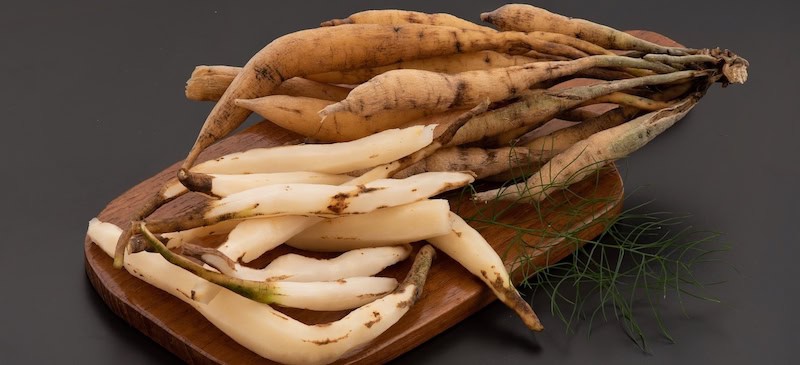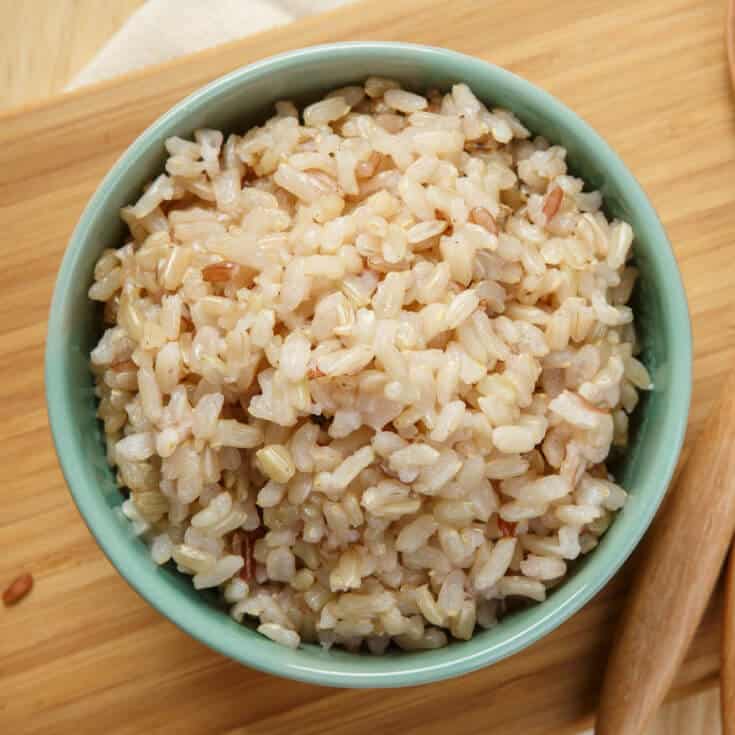This Dr. Axe content is medically reviewed or fact checked to ensure factually accurate information.
With strict editorial sourcing guidelines, we only link to academic research institutions, reputable media sites and, when research is available, medically peer-reviewed studies. Note that the numbers in parentheses (1, 2, etc.) are clickable links to these studies.
The information in our articles is NOT intended to replace a one-on-one relationship with a qualified health care professional and is not intended as medical advice.
This article is based on scientific evidence, written by experts and fact checked by our trained editorial staff. Note that the numbers in parentheses (1, 2, etc.) are clickable links to medically peer-reviewed studies.
Our team includes licensed nutritionists and dietitians, certified health education specialists, as well as certified strength and conditioning specialists, personal trainers and corrective exercise specialists. Our team aims to be not only thorough with its research, but also objective and unbiased.
The information in our articles is NOT intended to replace a one-on-one relationship with a qualified health care professional and is not intended as medical advice.
Shatavari: The Ayurvedic Wonder Herb You Need to Know About
June 14, 2024

Shatavari, a revered herb in Ayurvedic medicine, has garnered significant attention in recent years for its myriad health benefits.
Known scientifically as Asparagus racemosus, shatavari has been used for centuries to promote overall wellness, particularly in women.
As modern research begins to uncover the extensive advantages of this herb, more people are turning to shatavari as a natural remedy for various health issues, and it can be a valuable addition to anyone’s natural wellness routine.
What Is Shatavari?
Asparagus racemosus is a climbing vine in the asparagus family, native to the Himalayas and parts of India. Often referred to as the “queen of herbs,” it is a species of asparagus plant that grows in India, Nepal and Sri Lanka.
The name “shatavari” translates to “one who possesses a hundred husbands,” highlighting its traditional use as a female reproductive tonic. It also has been translated to “curer of a hundred diseases” and “having one hundred roots.”
The plant is prized for its adaptogenic properties, meaning it helps the body cope with physical and emotional stress.
Its roots are the primary part used for medicinal purposes, often dried and ground into a powder or made into a liquid extract.
In Ayurveda, the traditional Indian system of medicine, shatavari is revered as a “rasayana,” a rejuvenating herb that promotes overall health and well-being. As noted, the root is the primary medicinal part, packed with beneficial compounds like saponins, steroidal glycosides and antioxidants.
Health Benefits
1. Hormonal balance and reproductive health
Shatavari is best known for its ability to support female reproductive health. It helps regulate menstrual cycles, alleviate PMS symptoms and enhance fertility.
Some research suggests it may help balance hormones and promote healthy cervical mucus.
The herb is also beneficial during menopause, helping balance hormones and reduce symptoms, such as hot flashes and mood swings.
2. Immune system support
Rich in antioxidants, shatavari boosts the immune system by combating oxidative stress and protecting the body from harmful free radicals. This enhances overall health and reduces the risk of chronic diseases.
It’s believed this herb gets its immunomodulatory properties from its steroidal saponins called shatavarins, and in vitro studies have confirmed the immune-boosting effects on human peripheral blood lymphocytes.
3. Digestive health
Shatavari promotes a healthy digestive system by acting as a natural antacid and aiding in the treatment of conditions like gastritis, ulcers and indigestion. Its anti-inflammatory properties soothe the digestive tract and improve nutrient absorption, which may be beneficial for digestive issues like constipation.
For instance, a 2006 study found that this herb was “an effective antiulcerogenic agent” and “causes an inhibitory effect on release of gastric hydrochloric acid and protects gastric mucosal damage” in rats with gastric ulcers.
It might also help maintain healthy gut flora.
4. Anti-inflammatory and antioxidant properties
The anti-inflammatory compounds in shatavari help reduce inflammation throughout the body, which can alleviate conditions such as arthritis.
Additionally, its antioxidant properties protect cells from damage and support overall health.
5. Lactation support
For nursing mothers, this herb can enhance milk production. It is often recommended as a galactagogue, helping increase both the quality and quantity of breast milk.
A 2022 double-blind, prospective, randomized, controlled clinical study examined postpartum use of a shatavari product for break milk output. In total, 78 women were split into a group taking a bar with the herb or a placebo bar.
It turned out that the women eating the shatavari bar led to better satisfaction scores from the mothers in lactation, well-being of the child, taste and ease of use.
This led researchers to conclude that shatavari “can be an effective option in postpartum women to establish early lactation and build confidence in breastfeeding along with nonpharmacological intervention.”
6. Stress and anxiety reduction
As an adaptogen, shatavari helps the body manage stress more effectively. It has a calming effect on the nervous system, reducing anxiety and promoting a sense of well-being.
Shatavari can help the body adapt to stress by regulating the stress hormone cortisol. This can improve mood, energy levels and overall resilience.
7. Respiratory health
Shatavari’s potential anti-inflammatory and demulcent (soothing) properties might offer relief for coughs and respiratory problems.
While more research is needed to confirm these effects on humans, shatavari has been proven to be effective in treating coughing in mice, and it has been used to treat dry cough in Ayurveda for centuries.
8. Potential diuretic
If you follow an Ayurvedic diet or are familiar with that traditional form of medicine, you’ve probably heard asparagus racemosus being used as a natural diuretic. While it’s been used for this purpose for a long time, human experimental models are lacking.
However, research conducted on rats confirmed its diuretic effects, providing promise that this traditional remedy is effective.
Further research is needed to confirm the following potential benefits of shatavari as well:
- Potential kidney stones treatment, as shown in rats
- Lowering blood sugar
- Anti-aging effects
How to Use (Dosage)
Shatavari is available in various forms, including powder, capsules, tablets and liquid extracts. The appropriate dosage can vary depending on the form and the individual’s health needs.
Here are some general guidelines:
- Powder: Mix one to two teaspoons of shatavari powder with warm milk or water, and consume once or twice daily.
- Capsules/tablets: Typically, 500 milligrams to one gram per day is recommended, taken with meals.
- Liquid extract: Follow the manufacturer’s instructions, usually around one to two teaspoons per day.
It is always advisable to consult with a health care provider or an Ayurvedic practitioner before starting any new supplement, particularly for personalized dosage recommendations.
Risks and Side Effects
While shatavari is generally considered safe for most people, there are some potential side effects and considerations to keep in mind, such as:
- Allergic reactions: Individuals allergic to asparagus should avoid shatavari, as it can cause similar allergic reactions.
- Hormone-sensitive conditions: Those with conditions such as breast cancer, ovarian cancer or endometriosis should consult a doctor before using this herb, as it can influence hormone levels.
- Pregnancy and breastfeeding: While shatavari is often recommended for lactation support, pregnant women should consult their health care providers before use.
Common side effects may include mild digestive discomfort or changes in bowel movements, which usually resolve on their own. Other potential side effects include:
- Diarrhea
- Stomach upset
- Gas
- Skin rash
It’s important to note that limited scientific research is available on shatavari’s interactions with medications.
Conclusion
- Shatavari is a powerful herb with a wide range of health benefits, particularly for women’s health, immune support and stress reduction. Its adaptogenic properties make it a valuable addition to anyone’s wellness routine.
- However, as with any supplement, it is essential to use it responsibly and under the guidance of a health care professional.
- For those seeking natural ways to improve their health, shatavari offers a promising and time-honored solution. Whether you’re looking to balance hormones, boost immunity or manage stress, this Ayurvedic herb could be the key to a healthier, happier life.














